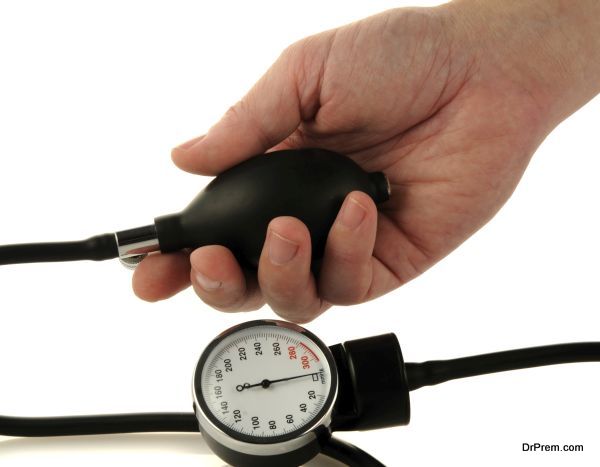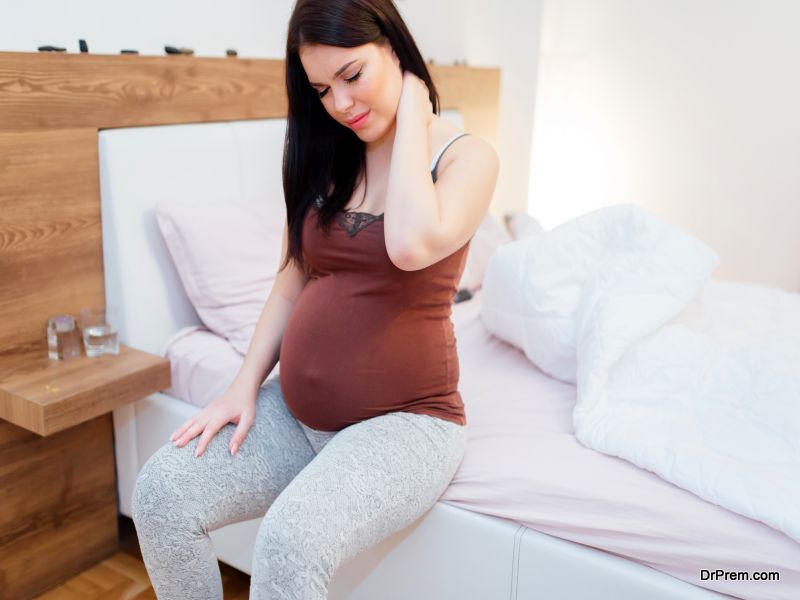Sleeplessness has always been associated with poor health and impaired cognitive abilities. Such situations are even worse in the case of pregnant women who are not only taking care of themselves but also the fetus that they are expecting. Here are some negative repercussions observed in women who don’t sleep for an optimum amount.
5 – Possible reasons behind your lack of sleep
1. Increases Hypertension

Michele A. Williams, co-director of the Center for Perinatal Studies at Swedish Medical Center in Seattle, addresses, “Large-scale sleep studies should include pregnant women so that health care providers and mothers-to-be can be more aware of the repercussions of insufficient sleep,”.
In a study conducted, more than 1,200 pregnant ladies were questioned about their sleep habits since getting pregnant at 14 weeks into their pregnancy. By and large, 20.5% of ladies said they rested nine hours every night, 55.2% of ladies dozed seven to eight hours of the night, and 13.7% dozed six or less hours out of each night, and 10.6% of ladies dozed 10 hours or more for each night right off the bat in their pregnancy. Over 6% of ladies were determined to have preeclampsia or pregnancy-initiated hypertension during the research. It is very evident how insufficient sleep during pregnancy can affect your blood pressure as well as can elevate risks for the baby.
2. Increases the circadian rhythm in the fetus
While you are pregnant, all the food that you eat and all that you drink changes into nutrients and get used up for the proper development of the fetus. It is very important to keep in mind that all that you consume, be it oxygen, is a source to the growth of your baby and when sleep is disrupted, blood flow to the placenta is compromised and you may encounter significant consequences. Insufficient total sleep or fragmentation of deep sleep may reduce the amount of growth hormone released, which can lead to developmental or growth problems in the unborn baby. Even a minor change in your oxygen level of mother can endanger the fetus. When you sleep, blood flow to the fetus is at its peak and oxygen levels that drop during sleep as a result of sleep apnea will have a major impact.
3. Preeclampsia in late pregnancy
 One of the worst complications you can have while you pregnant and not sleeping enough is Preeclampsia. Ladies who got under five hours of rest for every night were right around multiple times bound to create preeclampsia, the examination appeared. If high blood pressure is accompanied by protein in the urine, preeclampsia may occur. Preeclampsia is associated with potential organ injury in the mother and increases the risk of death for both mother and child.
One of the worst complications you can have while you pregnant and not sleeping enough is Preeclampsia. Ladies who got under five hours of rest for every night were right around multiple times bound to create preeclampsia, the examination appeared. If high blood pressure is accompanied by protein in the urine, preeclampsia may occur. Preeclampsia is associated with potential organ injury in the mother and increases the risk of death for both mother and child.
Preeclampsia usually starts with a setting of chronic snoring which contributes to swelling along the airway and which in turn, narrows the passage through which air flows. Also, preeclamptic women have swelling in their legs, feet, and hands.
4. Your Emotional and Mental Health Is Fried
If you are worried about your pregnancy and time that stretches in front of you, join the club! For you are not the only one of your kind, especially if this is your first pregnancy. It is important that you take the necessary steps to maintain your health as well as your baby’s well-being. It is absolutely fine to reach out for help in case you are anxious or looking for some advice. It is very important for pregnant women to stay emotionally and mentally fit and essentially have enough sleep. Worrying, overthinking about your labor and delivery isn’t something productive and can make you depressed. Hence, sleep is very much needed. Be it a home mattress or a hotel mattress, make sure that you are getting ample rest wherever you are.
5. You are Exhausted (More than you should during pregnancy)
 While pregnant, your body undergoes phenomenal hormonal changes, especially in the first 12 weeks which can make you naturally exhausted. The only answer is to try to rest as much as possible. Irregular sleep timings or no sleep at all can make you feel more tired than usual.
While pregnant, your body undergoes phenomenal hormonal changes, especially in the first 12 weeks which can make you naturally exhausted. The only answer is to try to rest as much as possible. Irregular sleep timings or no sleep at all can make you feel more tired than usual.
Nearly 28 percent of pregnant women get less than seven hours of sleep every day which is not an optimal amount for a healthy pregnancy, Now that we are aware of the implications of the lack of sleep during pregnancy, the following steps can be taken to curb this insomnia and helping expecting mothers sleep better for themselves as well as their babies.
5 – Tips to sleep better during pregnancy
1. Use A Nightlight in The Bathroom
 Instead of flipping on the light switch multiple times a night, you can invest in a soft muted nightlight that will well serve the purpose and also not disrupt your sleep, unlike the harsh white light. It will be easier to walk along with the light by the nightlight, just make sure you do not have anything lying in your path to the bathroom.
Instead of flipping on the light switch multiple times a night, you can invest in a soft muted nightlight that will well serve the purpose and also not disrupt your sleep, unlike the harsh white light. It will be easier to walk along with the light by the nightlight, just make sure you do not have anything lying in your path to the bathroom.
2. Keep Up with A Regular Sleep Schedule
By maintaining a regular sleep schedule, you will be instructing your body to have a sleeping pattern which will help you fall asleep faster and also ensure that you have a restful sleep. This will ensure that you sleep for a minimum of stipulated 7 hours every night. If you are unable to find the sweet spot, invest in an adjustable bed frame.
3. Take A Nap
 There is nothing wrong in taking naps now and then. In fact, it makes your body less prone to stress that sometimes leads to hyperactivity at night which may deprive you of your snooze time. If at home, ask your partner or friend to take care of things around the house for 30 minutes to an hour and give yourself a break. However, make sure that these are short naps and not long siesta which can leave you groggy instead of refreshed. You can make use of your adjustable bed frame to get in the snooze mood.
There is nothing wrong in taking naps now and then. In fact, it makes your body less prone to stress that sometimes leads to hyperactivity at night which may deprive you of your snooze time. If at home, ask your partner or friend to take care of things around the house for 30 minutes to an hour and give yourself a break. However, make sure that these are short naps and not long siesta which can leave you groggy instead of refreshed. You can make use of your adjustable bed frame to get in the snooze mood.
4. Avoid Caffeine or Screen Before Bed
Though the idea of a hot cuppa while checking out your phone on the comfort of your bed sounds wonderful, it might have an adverse effect on your sleep schedule and quality. Smartphones and Tablets emit blue rays that not only trick your brain into believing it is daytime (and prepares your body to work) but also affect your baby’s circadian rhythm (as discussed above). Caffeine on the other hand, known for its steroid-like effect will rob you of your sleep by putting your brain into alert mode.
5. Use Soft Music and Essential Oils
 Create a soothing ambiance in your room that will help you fall asleep. Calming sleep music and essential oils can help bring in the much-needed tranquility and serenity to your room that will relax your senses and help you drift off to an easy and restful sleep. These elements will also help soothe your mind which is scrambling around and racing, unable to settle down as you try to sleep. You can also match the decor to this tranquil environment by adding certain elements like upholstery, shag rugs and everyday home products.
Create a soothing ambiance in your room that will help you fall asleep. Calming sleep music and essential oils can help bring in the much-needed tranquility and serenity to your room that will relax your senses and help you drift off to an easy and restful sleep. These elements will also help soothe your mind which is scrambling around and racing, unable to settle down as you try to sleep. You can also match the decor to this tranquil environment by adding certain elements like upholstery, shag rugs and everyday home products.
Conclusion
For some women, one can also suggest sleeping aids but not without medical supervision. Doctors usually advise against extra medicines while expecting. So here you go, the impact of sleeplessness on your pregnancy and how you can be more aware of these while mitigating them with a few simple steps.
Article Submitted By Community Writer




